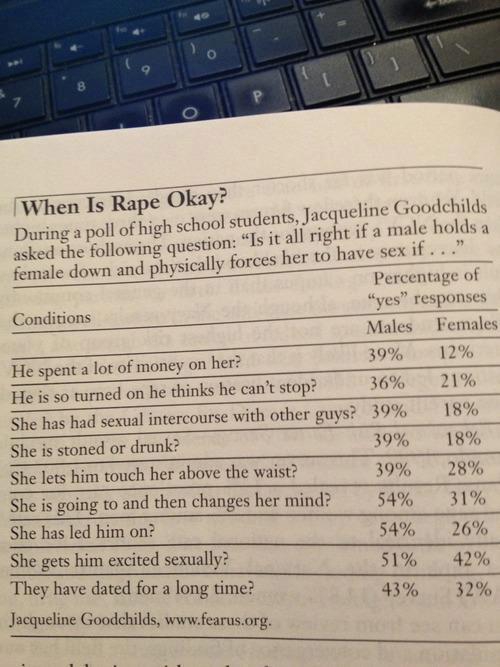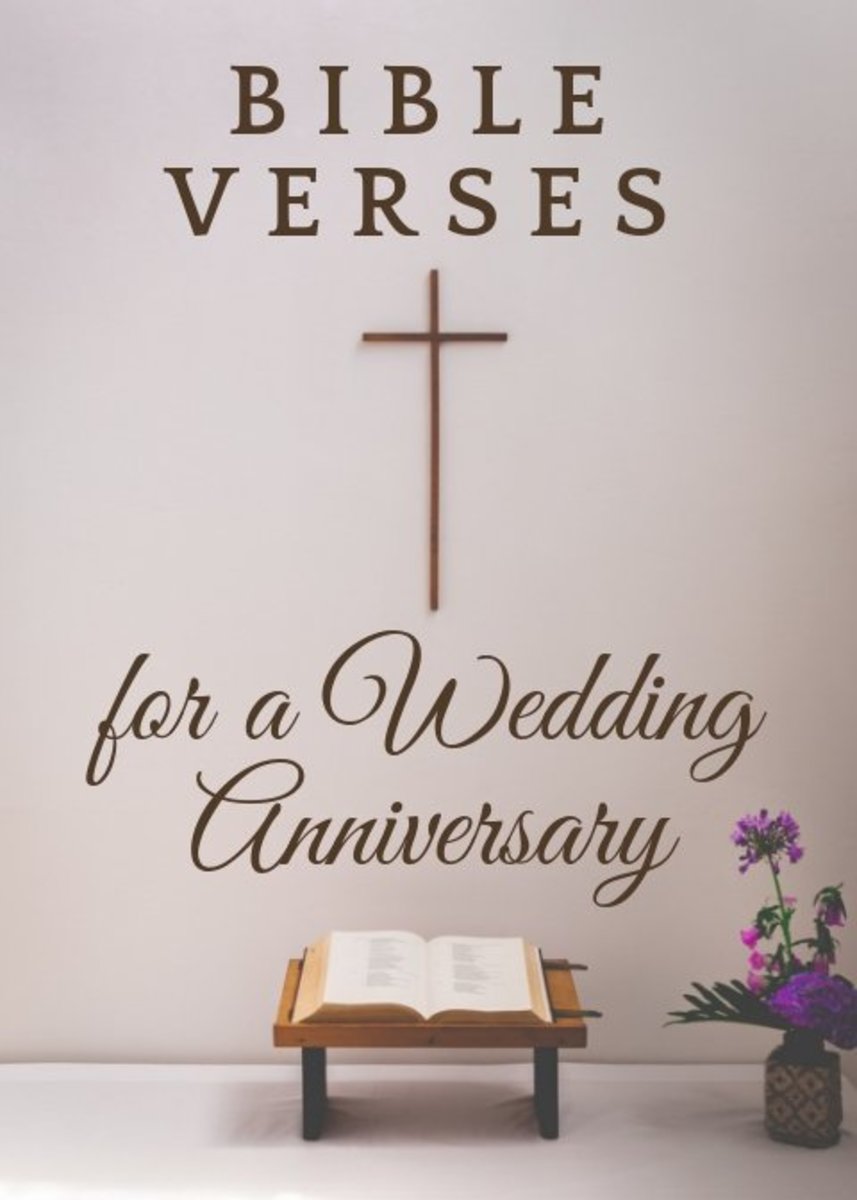When Is Rape OK? Part II-What Does The Bible Say?

This article is a continuation of the initial study or poll given by a teacher from 1978, to high school students, in efforts of discovering their view points of the act of rape and the validity thereof-if one even exists. The poll sheds light to the minds of adolescents and their thoughts of 'forcefully engaging in sexual activity with the fairer sex'. Here we will look upon the Biblical aspect of such an act to gain further perspective.
Read Part I here: When Is Rape OK??? Viral Facebook Post
According to the Merriam-Webster Dictionary, the definition of rape is:
- Rape: unlawful sexual activity and usually sexual intercourse carried out forcibly or under threat of injury against the will usually of a female or with a person who is beneath a certain age or incapable of valid consent — compare (second meaning of third definition)
- Synonyms: assault, force, outrage, ravish, violate

The Bible has many instances where the talk of 'rape' is suggested, inferenced and/or interpreted. Some verses are perhaps more explicit than others, leaving little to room for other derived meanings. Some verses are simply black and white. Keep in mind, however, that these non-shaded verses are comprehended in the English language, not the original language of the time, which means that translation was in order. With translation however, room is often left for interpretation and interpretation can sometimes be misleading. It may be best that in efforts of getting the best and most efficient understanding of religious texts, one should invest in learning, studying and reading such texts in the original languages in which they were written.

What Does The Bible Say About Rape?
So, just what does the Bible say about rape? Let's point out some of the biblical verses that contain such speech on the subject.
- Judges 21:20-23
- 2 Samuel 12:11-12
- Deuteronomy 21:10-14
- Deuteronomy 22:28-29
- Deuteronomy 20:10-14
All of these verses are from the NIV(New International Version) Bible via biblegateway.com. Some words differ in the verses of this version compared to other Biblical versions, such as the King James version. However, for the sake of staying a-course topic, we will focus on this version as it is the newer of the two versions and many others.
So just what do we have here? Implicitly, verses like Deuteronomy 21:10-14 state that:
10 When you go to war against your enemies and the Lord your God delivers them into your hands and you take captives,11 if you notice among the captives a beautiful woman and are attracted to her,you may take her as your wife. 12 Bring her into your home and have her shave her head, trim her nails 13 and put aside the clothes she was wearing when captured. After she has lived in your house and mourned her father and mother for a full month, then you may go to her and be her husband and she shall be your wife. 14 If you are not pleased with her, let her go wherever she wishes. You must not sell her or treat her as a slave, since you have dishonored her.
Here, we see that it has been so ordained that a man has the permission to take unto him captives as spoils of war. If among those captives lay a women of interest, then that man is free to wisk her away and marry her for himself, provided certain stipulations such as mourning of the loss of her parents take place. Furthermore, if this man is not pleased with her then he must let her go.
Nothing here in this verse points to the opinion of the women. The verse doesn't state to let her go if she isn't in compliance, but instead only if the man does not want her.
Some scholars and/or critics will argue that the implicit statement still doesn't condone rape. Even as the man may have his way with her 'in essence', he must still make her an honest women through marriage, or set her free otherwise. Some may say that rape can very well exist, and in fact does exist in marriage as well. Therefore, simply engaging a captive into marriage does not condone the act of forced sex. However, sex nor rape are actual terms used here. Can the notion then be 'inferred' as consummation goes hand-in-hand with marriage? So if consummation goes hand-in-hand, then it may be safe to say that the discovered captive women that has been enjoined in marriage will most likely engage in the act consummating that union with her 'found' husband. It doesn't specify however, if this sexual act is done under her full compliance. The verse may infer however, that the man has rights under the law of marriage, including sex, at no account of the feelings of the women on the matter.
With much to be determined in the above verse, let us move to perhaps, a more explicitly documented verse. Deuteronomy 22:28-29
28 If a man happens to meet a virgin who is not pledged to be married and rapes her and they are discovered, 29 he shall pay her father fifty shekels[a] of silver. He must marry the young woman, for he has violated her. He can never divorce her as long as he lives.
The verse here seems more explicit in that the actual words 'rape' and 'violated' are used. Again, since we are using the English language to understand the bible, we must rely on English meanings. As in the above definition of the word rape, one of the synonyms used is violate.
According to Merriam-Webster, the definition of violate is:
This shows us that rape is a thing that causes harm to another via some form of violation, which means committing some act upon another with disregard to the unwillingness, opinion, and/or feelings of that other person with regard to said act.
As we look at this particular verse, we can see that there are stipulations for the rape and violation of a women, a virgin women in particular. However, are these stipulations proved to be fitting. In our society today, the stipulation for rape would result in jail time in the least bit. However, this verse states that the stipulation for rape is to only pay the father of the victim a fee of fifty shekels, in addition to marrying the virgin. What if this women does not want to marry however? Today, a rape victim cannot imagine engaging in marriage with her assailant. She would be devastated from such a gesture.
Does The Bible Condone Rape?
Do You Think That The Bible Condones Rape?
We could go on and on dissecting these and various other verses via the bible including ones not mentioned here in the article. For instance, 2 Samuel 12:11-12 discusses how the Lord was going to punish the people of David by removing their wives from them and giving them unto other men to sleep with during the day.It doesn't point out any disagreement from the wives themselves for such an action, and one must wonder if these women would be in total compliance of such a decree, or perhaps they would go along with said decree despite their condemning it, making for a violation unto them.The basis is; How do we distinguish between the violation of rape as it relates to the Bible, and does some of these verses contradict our current beliefs and laws on the matter?
The definition of rape, as stated above, points out the fact that an unlawful act occurs(by force and unwillingness) of another, usually a female. This isn't always the case though, as with Lot and his two daughters. Can we say that Lot was a victim of rape, as his two daughters seduced him with wine and thereafter forced themselves upon him? Surely in his sober mind, Lot would have never agreed upon such an abominating act, which is why it took the clever and sinful act of seduction through intoxication to carry out this deed. In any event, can we say that rape was the result here? In today's society, one that uses alcohol, which is quite often, to influence the fairer sex in engaging in sexual activity will still be considered a perpetrator of rape if that influenced person decided to press charges.
In an explanation of this particular event in the Bible regarding Lot, one explanation given in a Q&A session via gotquestions.org, the responding party to the question of Lot's indiscretion is that "GOD gives us the whole truth about Biblical characters...". This person goes on to explain that we must realize that bad things happened amongst favored people just as they did with those unrighteous. The bigger lesson however, is to understand and recognize these faults, that we may then learn from them in turn, and not be doomed ourselves in repeating them. Does such a notion still condone what was done back then? Does it perhaps mean that our evolvement into what is law today, as it corresponds with such pardoned actions of old, is an example of how we have learned from those mistakes? Read Full Explanation of above Q&A session here








